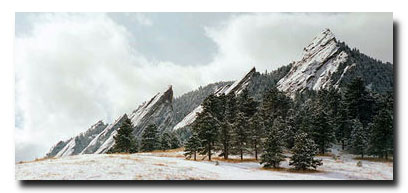| 2007
RiverWare User Group Meeting Preliminary Agenda NCAR/UCAR Center Green Campus Auditorium Boulder, February 6-7, 2007 |

Final Agenda/Presentations |
||
Evaluation of the Hydrologic Component of the 2003 Biological Opinion and Other Alternatives Using URGWOM
Nabil Shafike (New Mexico Interstate Stream Commission), Marc Sidlow and Donald Gallegos (U.S. Army Corps of Engineers)
The 2003 Biological Opinion (BO) added an additional water demand for the middle Rio Grande basin by establishing target flows at specific locations to maintain habitat for the endangered silvery minnow. To meet this demand Reclamation has established the supplemental water program, which focuses primarily on a strategy of acquiring surplus water supplies as reservoir storage. That water has been released as necessary to keep certain reaches of the river wet or to meet target flows at specific locations as established by the 2003 BO. This work provides an evaluation of the 2003 BO and the ability of the Reclamation to continue meeting target flows using supplemental water program.
The most recent version of the Upper Rio Grande Water Operations Model3 (URGWOM) was utilized to conduct the analysis. URGWOM is a comprehensive surface water model developed by the U.S Geological Survey, the U.S. Bureau of Reclamation, the U.S. Army Corps of Engineers and the New Mexico Interstate Stream Commission (NMISC), and constitutes the best currently available tool for linking reservoir operations to downstream demands and flows in the Rio Grande system. Three different synthesized 10-year hydrographs representing dry, near average and wet hydrologic sequences were used to present a broad range of possible future scenarios. Results indicated that on an annual basis about 30-50K acre-feet (af) will be needed to meet the 2003 BO target flows during an average year and about 70-90K af will be needed during dry years. In addition to the high water demand for the 2003 BO, the sources of the supplemental water program are diminishing. As a result, the Reclamation will not be able to sustain the supplemental water program and other solutions should be investigated.
|
CADSWES - Center for Advanced Decision Support for Water and Environmental Systems cadswes.colorado.edu -- edit February 1, 2007 -- e-mail webmaster |